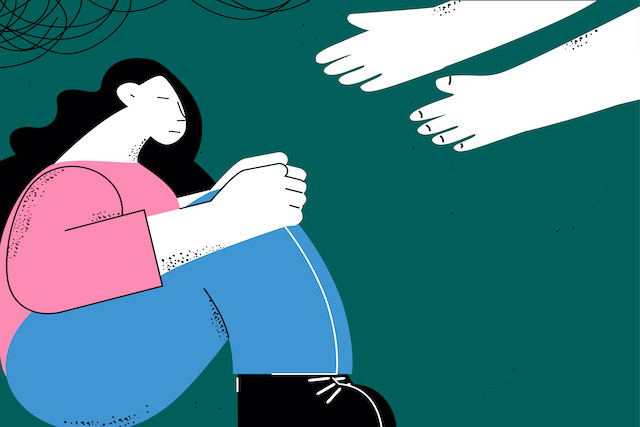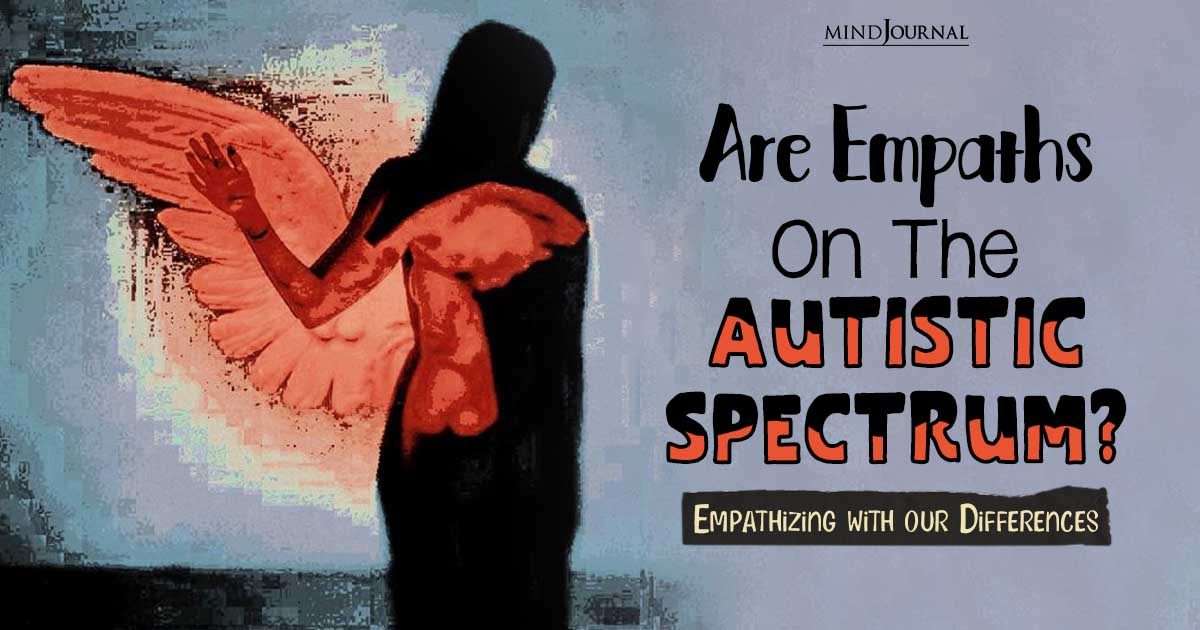Ever thought, “are empaths on the autism spectrum”? Let’s explore the shared traits and unique aspects of both. Discover the gifts and hurdles that come with being an empath or being on the autism spectrum.
Are Empaths on the Autism Spectrum?

I often get asked the question “Are empaths on the autistic spectrum” because of their similar tendencies to experience sensory overload from noise, light, smells, sounds, certain kinds of touch, and crowds. They also both need quiet alone time perhaps more than other people.
Related: 10 Movies That Inaccurately Portray Mental Health
In my clinical practice, I have found that while some empaths have autism, those on the spectrum aren’t typically empaths. People with autism often have developmental and cognitive challenges that empaths who are not on the spectrum don’t face.
Plus the spectrum includes many variations including the genius traits often associated with what was previously known as Asperger’s Syndrome (but now labeled as ASD). There are various gifts and challenges for both empaths and for those on the autistic spectrum.
While researching for my book The Genius of Empathy I had the honor of speaking with Dr. Temple Grandin, a professor of animal science at Colorado State University, who openly shared her own experiences being on the autism spectrum (ASD).
She told me that when she witnesses animals or people getting hurt her empathy immediately clicks into action to help someone. She sees her emotions as more of a passing thunderstorm, and focuses on living in the present.
This can be an advantage to stay emotionally centered in charged situations. In the past, it was believed that those on the spectrum may lack empathy.
Dr. Grandin brought up an important point when she said that those on the spectrum do have empathy but may express it much differently. It will be interesting to find out what future scientific research discovers about the relationship between empathy and ASD.
Empaths And Autism: Empathizing With Our Differences
Perceived or real differences can present obstacles to empathy. Studies have shown that it may be harder to empathize with experiences that are different than our own. We also tend to take comfort in similarities since we generally know what to expect, rather than in areas where we may differ.
However, just as it may be challenging for people who are not on the spectrum to understand those who are–it may be equally challenging for those on the spectrum to understand those who are not.
To enhance your empathy be mindful of this conditioning so you can begin to open your heart to others whom you may not initially understand. You can also learn to have empathy for your own uniqueness, needs, and differences.
For instance, not everyone sees the world in the same way. There is a creative variety of cognitive styles such as autism spectrum disorder and attention deficit hyperactivity disorder (ADHD) Each style has its own pluses and challenges.
It’s important to see loved ones, friends, and coworkers who have these differences with empathic eyes. It is equally important for them to see your differences (from them) with empathy as well.
Do not judge others as inferior, though some cognitive styles can be more emotionally problematic than others. The goal is always to remove obstacles that keep our hearts closed or foster misunderstanding. You’re learning about each other. It is an ongoing dance of connection, respect, tolerance, and love
Surely, we all need as much empathy as possible in our lives. Empathy is a basic life-affirming quality to nurture.
Related: Breaking Down Stereotypes: 40 Famous People With Autism Who Inspire Us
I hope you can prioritize it and your own healing. When you encounter obstacles to empathy, pause and be gentle and patient with yourself. Don’t force anything. Always show yourself loving kindness. Love just keeps growing when you hold it close and care for it well.
Share your thoughts on autism and empathy in the comments below!
(Adapted from The Genius of Empathy by Judith Orloff MD, 2024 Sounds True Publishing)










Leave a Reply